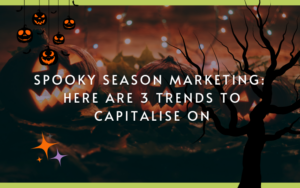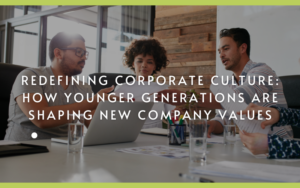AI coming for our jobs, the unstoppable tide of advancing technology, the inevitable drama and headline-grabbing changes politicians make to economic policy… it’s enough to make your head spin. I almost long for the days of scheduled, clear announcements from COVID press conferences.
Knowing that as a business owner or manager, you probably already have a lot on your plate, at NTG we thought we’d try to do all the hard work for you. That’s why, as part of our new newsletter we’ll be regularly curating and analysing some of the most important business topics and trends circulating right now.
We’ll break things down, offer an expert perspective and leave you with a nice short, clear and concise summary of essentially, what the heck is going on.
We’re all in this together folks, so let’s get to it.
AI (Artificial Intelligence)
The elephant in the room – the elephant who might steal your job and there’s a really minute but slightly unnerving chance that it might go rogue and take over the planet, or at least be used for nefarious purposes.
Here’s our super simple summary of what we think you need to know:
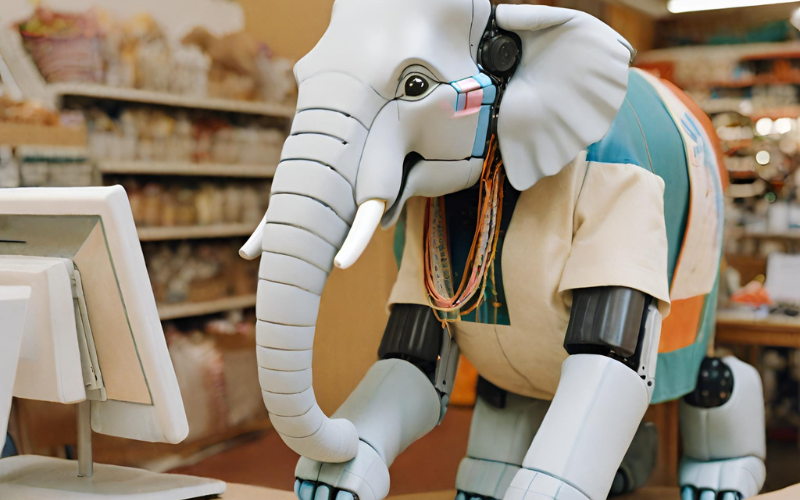
Image: Generated on Canva.com using the Magic Media App with the prompt “A robot elephant who is working as a shop cashier.”
Who is Sam Altman and what's going on with his job?
You may have recently been following the saga of Sam Altman, who briefly appeared at Rishi Sunack’s AI Conference at Bletchley Park, before getting sacked by the board at his company OpenAI, then hired by Microsoft, then reinstated at OpenAI following an employee revolt in his favour. Yeah, him.
Well let’s start with OpenAI, it’s the company that brought us ChatGPT, but the most important thing many don’t know is that OpenAI is actually a non-profit AI research company. Which naturally, made the big-profit global corporations feel a bit itchy. So in January 2023, Microsoft announced it was investing $10billion into OpenAI over the next few years.
But why did they kick Altman out?
Well the board essentially accused Altman of not being candid with them, so they had lost confidence in his ability to lead as CEO. As of yet, no one is sure what Altman was keeping from them exactly, but there is some speculation that it’s something to do with Altman’s strong views on the ethics of AI development.
And what does all that mean?
Well if the drama was caused by disagreements on AI ethics, it further brings to light current questions that are plaguing politicians and world bodies alike; Should a few billionaire individuals (like Elon Musk) and big tech companies (like Microsoft) have absolute power over the development, launch and usage of something as world-changing and influential as AI? What if it all goes wrong? Who would be to blame? Are we dependent on the personal ethical stances of a few?
Right now, only time will tell.
Will AI Take Our Jobs?
This is a question that was, quite curiously, discussed between Rishi Sunack and Elon Musk at the Bletchley Park AI conference. In fact, the direct quote from Musk was:
"There will come a point where no job is needed ... You could have a job if you wanted to have a job, for personal satisfaction, but the AI will be able to do everything.”
Elon Musk
However, it’s not necessarily going to lead to a dystopian future where humans bow down to robot overlords. In fact the International Labour Organisation believes AI will instead “revolutionise labour”, complimenting current jobs and making them easier and more efficient. Akin to the technical revolution led by the dawn of the computer in the past century.
But unlike the humble computer, the constant acceleration of technology and the financial backing of billionaires means AI is in 5th gear. Many experts believe it will only take 5-10 years before AI becomes a major influence within the jobs market.
And that has politicians scrambling. Brexit alone took 3-4 years and still endures imperfect management sprinkled with confusion. How can politicians realistically prepare their populations for such a massive change to society?
Well they’re discussing things like Universal Basic Income, and many believe those who lose their jobs to AI will instead be able to focus on education, public service and perhaps even the betterment of mankind. Other worry that AI will instead cause a bigger wealth gap between the rich and the poor.
It will be an interesting one to watch play out.
And How Exactly Does This Affect My Business?
Well we all learnt a valuable lesson during COVID-19 didn’t we? Those who don’t adapt and change with the tides, fail. Businesses who couldn’t get their act together and create an online, remote offering to combat the fact their customers were in lockdown, were mostly not able to retain a sustainable level of cashflow into the business.
It’s worth noting that the effects of AI will be bigger and further reaching than the effects of COVID, and not only that, AI won’t go away and have things ‘return to normal’ like a passing pandemic.
Now is the time to start researching seriously into how AI will affect your specific industry. You’ll need to consider if you should start training staff in it’s use, if you should start installing AI tools that will give your business the initial advantage it needs, and if there are any opportunities created by AI that you can take advantage of. Here’s a few to consider:
- Can the installation of AI tools for more mundane tasks free up your marketing team to make more creative content that reaches new customers?
- Can AI eliminate or improve jobs that are considered 'boring', freeing up your budget to offer better wages and incentives for current staff?
- Could AI help you to get to know your customers better, so you spend less time researching and more time developing a great product?
- Could AI save your business time and money that you could instead invest into your community, improving your business reputation?
The Autumn Statement
The Autumn Statement is an annual affair where the government announces it’s spending plans for the year ahead. This includes things like changes to taxes, minimum wage, benefits, incentives to home buyers – really almost anything you can think of that affects your precious pennies in the bank.
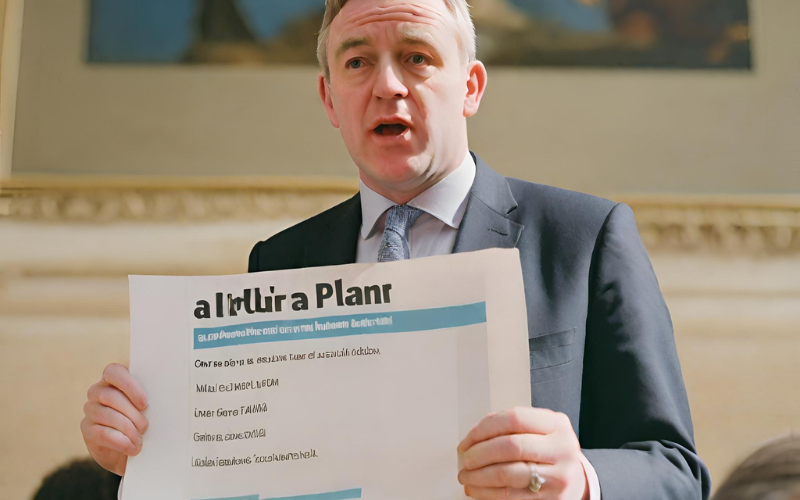
Image: Generated on Canva.com using the Magic Media App with the prompt “A UK politician announces spending plans.”
So What Was Actually Announced That's Relevant for Businesses?
- In April 2024, The National Living Wage will be raised to £11.44/hr. Apprentice minimum wage will be boosted to £6.40/hr.
- The living wage will also become a legal requirement for those aged 21 and over, previously only applying to those 23 and over.
- Class 2 National Insurance will be abolished, meaning self-employed people making over £12,570 in profits will save around £192/year.
- £4.5 Billion in funding has been committed for 'manufacturing' up to 2030, with a focus on Medical Research, Aerospace and Green Industry Firms.
- An additional £500m of funding has been committed to UK AI Innovation.
- A scheme has been introduced to speed up business planning permission applications.
- £50m has been allocated to fund apprenticeship schemes in key growth sectors, such as engineering.
- Tobacco duty has been increased, but alcohol duty has been frozen.
- A tax break which allows businesses to claim back 25p of corporation tax for every £1 spent on IT, machinery and equipment investment has been made permanent.
- Business rate calculations have been frozen for a further year, and a 75% discount for hospitality businesses has been maintained for a year too.
- As of January 6th, employee national insurance rates will be cut from 12% to 10%.
Electric Vehicles and Net Zero
We were all bracing for the ban on sales of new petrol and diesel cars by 2023, but the current UK government recently decided to delay this until 2035. However, the delay doesn’t mean the UK government is bored of electric vehicles – quite the opposite, as the Department of Business and Trade announced in October 2023 that it had awarded £89million of funding to net-zero tech projects.
A huge chunk of these projects are dedicated to creating and developing electric vehicles, more efficient batteries and the infrastructure required to support these vehicles. Funding was even awarded to those mining for the components required to build batteries.
It’s clear the UK is following the US when it comes to this, with Joe Biden making investment in these industries a top priority – not only because of their environmental benefits, but also because being a leader in this space offers the potential for huge economic benefits related to companies placing their HQs, operations and plants in the countries most willing to support them.
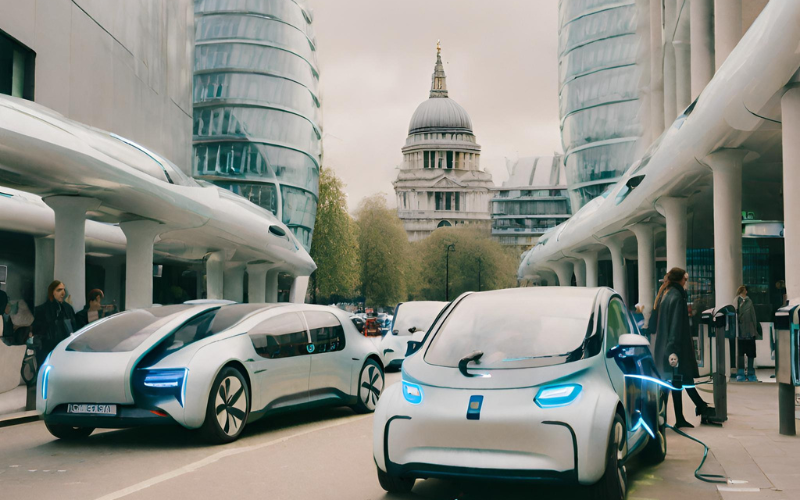
Image: Generated on Canva.com using the Magic Media App with the prompt “A futuristic London with electric cars.”
And How Exactly Does This Affect My Business?
Net Zero is inevitable. There may be more incentives to help businesses transition, but either way, it’s going to happen – and there may even be further impending penalties for businesses who don’t comply. Making a decision to invest in costly, eco-friendly business infrastructure may be a game of the correct timing, but it seems wise to start making the right moves.
Even if you don’t have a fleet of vehicles, Net Zero goals have already began to affect other industries – just take a look at the single-use plastic bans. It’s time to sit down and seriously consider your business’ environmental impact – take advantage of the potential positive PR before a more scrutinising public could lead to negative PR that’s difficult to recover from.
Inflation and The Cost of Living

Image: Generated on Canva.com using the Magic Media App with the prompt “A UK supermarket.”
Yay! Inflation is down from 11% to just 4%… but wait, that’s still double the Bank of England’s target. We’re far from out of the woods.
With world conflicts, post-pandemic recovery and a labour shortage, it’s still a difficult economic landscape to navigate, regardless of optimism.
Aside from that, there’s always a super-fun, lingering fact to consider: bringing inflation down by definition involves slowing the economy – and we haven’t yet seen the full effects of that.
You see it takes quite a while for interest rate changes to affect spending. You have to wait for savings to dry up, lenders to hold back and markets to slow. When they do, people spend less, and businesses suffer. In fact, companies are snowballing into insolvency – there’s almost a 20% increase since 2022. 83% of UK Department Stores closed in the past 5 years and in the first quarter of 2023 we saw a record breaking disparity between businesses closing and new ones opening, with 105,000 UK businesses shutting their doors for the final time.
We’re not here to send you into a cataclysmic spiral of doom, but we instead firmly believe this trend should motivate you into action:
- Make it your priority to stay up to date with new trends, emerging industries and opportunities. Don't be the last to try new things out.
- Consider investing in staff training, so your team are more resilient and adaptive to upcoming challenges such as the rise of AI or a struggling labour market.
- Armour yourself against the risk of losing talent, make sure your company is listening to what employees want, whether that's flexible hours, working from home or better incentives.
- Ensure your online presence is bulletproof and invest in growing it. The high street is declining. It's not dead, but you'd be foolish to dismiss the online world.
- Focus on experience and community building - make your customers and following emotionally invested in your success and continuation.
- Listen and research - do your core customers want something that you're not currently offering?
- Collaborate - can you partner up with complimentary businesses to reduce your costs and benefit each other?
- Analyse your distribution channels - a big reason customers choose one brand over another is the ease of access.
Don’t forget, we’re sharing lots of expert marketing knowledge for free on our TikTok channel, so why not take advantage of that too?
The 2024 General Election
2024 will see a general election. We don’t yet know when, but we do know politicians are clamouring to gain your vote with small hints of their proposed economic strategies.
What Do The Conservatives Want to Do For Businesses?

Image: Generated on Canva.com using the Magic Media App with the prompt “A UK Conservative Politician.”
At the time of writing this article, there haven’t been many concrete promises from either Labour or Conservatives. This is likely because most ‘electioneering’ will happen in the new year, accelerating the pace as we creep nearer to the polling stations.
However, we can speculate and ponder thanks to a few press conferences and the occasional hint from politicians.
We’ve tried our best to sum up some of the main economic policies the conservatives have currently mentioned or hinted at:
- Encourage a strong economic focus on the UK becoming a world leader in AI development .
- Increase the available UK labour market by tacking deficiencies caused by those on long-term sick leave.
- Aim to make the first £12,500 of earnings tax-free.
- Reduce the number of legal migrants by upping the requirements they must meet regarding education, qualifications and income.
What Does Labour Want to Do For Businesses?
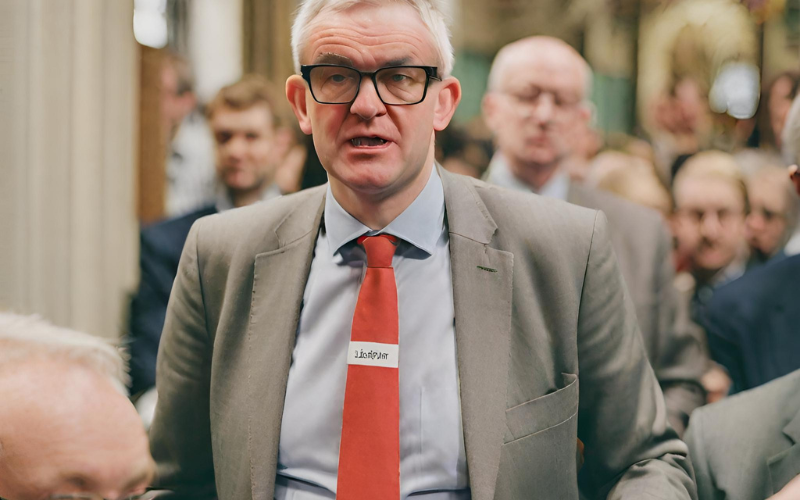
Image: Generated on Canva.com using the Magic Media App with the prompt “A UK Labour Politician.”
Although they have a lot of seats to win, Labour have been somewhat evasive with their plans for 2024 also. It’s likely that we won’t see too much from either party until the actual polling date is announced.
Until then, here are some of the things we can glean from recent interviews with the labour party:
- Boost investment and economic focus towards green industries.
- Expand on apprenticeship and skill training opportunities.
- Focus on modernising and updating the planning system to remove barriers for businesses.
- Reforming and managing critical supply chain issues currently causing higher prices and slower progress in critical sectors.


